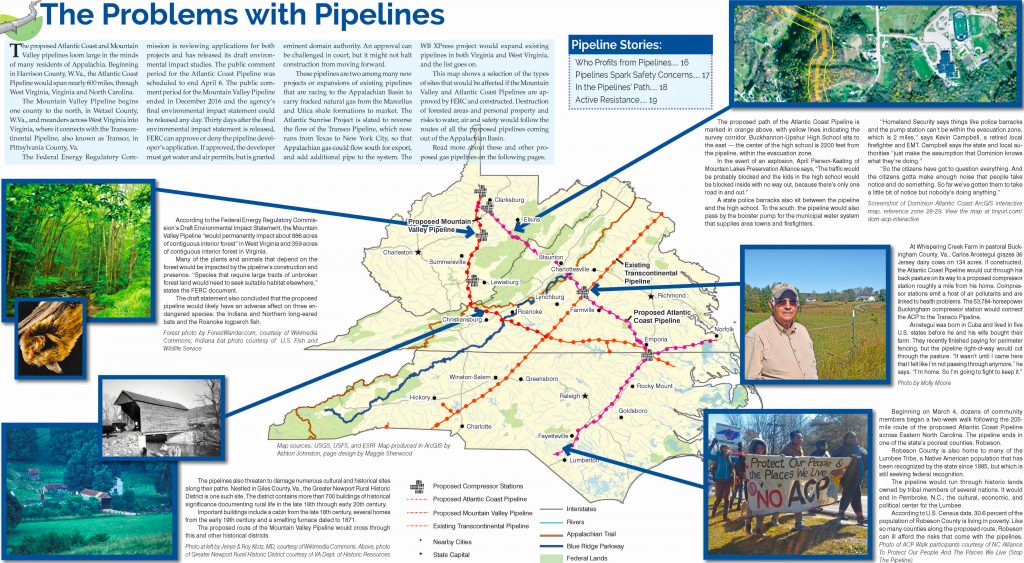Cleaning Up Coal Ash
For well over a century, power plants across the country have burned coal to generate electricity. And for just as long, leftover coal ash has been dumped in open, unlined pits near the power plant, usually located on a river or lake. Every year, U.S. power plants produce 130 million tons of coal ash, which is the second largest waste stream in the country after municipal garbage.
Coal ash concentrates the toxic heavy metals found in coal, including arsenic, mercury, lead and selenium. Stored in unlined, wet impoundments, coal ash has been leaking these toxics into our groundwater and surface waters for years. Sometimes these impoundments collapse — with disastrous results.
Yet government regulations for coal ash management are either non-existent or sparse, and there is little enforcement of the regulations that do exist. In North Carolina, this lack of oversight — and the complicity between state regulators, elected officials and Duke Energy — came to a boiling point in February 2014 when one of Duke’s coal ash impoundments spilled 39 million tons of ash into the Dan River.
Citizens living near North Carolina’s 33 coal ash impoundments — all of which have leaked — have fought for transparency from Duke and the state, and for cleanup of the pollution that threatens their property value, health and family. Their actions forced this issue into the headlines of news networks and to the forefront of environmental justice conversations in the United States.
Appalachian Voices stood with these communities as we worked for years to compel Duke Energy and the N.C. Department of Environmental Quality to excavate coal ash from all the North Carolina sites and dispose of it either in lined, dry landfills, away from waterways, or by recycling it for concrete or other uses, provided it’s done in a manner that protects public health and the environment.
On Jan. 2, 2020, North Carolina announced a historic settlement with one of the state’s most powerful corporations and polluters, Duke Energy. The settlement requires Duke to move nearly 80 million tons of toxic coal ash at six of its power plants to properly lined landfills onsite or recycle it.

Learn information about specific coal ash impoundments in the South, including health threats and safety ratings:
Additional Resources
Fact sheets, videos, links to academic research, and more
Sign Up to Act
Help us protect the health of our communities and waterways.
Latest News
The Science and Synergy of Trailbuilding
Building trails involves the science of physical, social and ecological sustainability and the synergy between trailbuilding and conservation. Well-built trails can look accidental but will withstand the ages and the elements.
The Problems with Pipelines
This map shows a sampling of the types of sites that would be affected by the proposed Mountain Valley Pipeline and Atlantic Coast Pipeline. View the print centerspread here while we transfer it to a web-friendly version.
Member Spotlight: Susan Tyree & Kent Walton
Virginia residents Susan Tyree and Kent Walton are long-time Appalachian Voices members. They share their passion for nature through Susan’s art, Kent’s work as an arborist, and their activism with the Quaker environmental and social justice community.
Pipeline Construction Would Scar Appalachian Trail Vistas
If constructed, the proposed Atlantic Coast and Mountain Valley Pipelines would permanently mar several majestic vistas along the Appalachian Trail. Local residents and avid hikers voice concerns.
Environmental Votetracker — April/May 2017
How Appalachian House and Senate members voted regarding several environmental issues in February and March.
Pipelines Spark Safety Concerns
While both the Pipeline and Hazardous Materials Safety Administration and industry groups say pipelines are the safest way to transport products like natural gas, pipeline incidents are on the rise.






